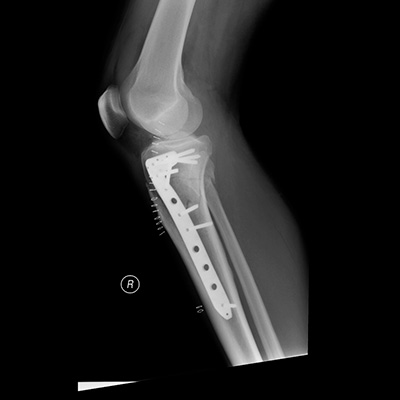Trauma and Fractures
There is a huge variation in the type and severity of fractures and injuries that can occur.
For many of these, surgery is not necessary, but others greatly benefit from surgical intervention.
The surgical treatment of fractures has advanced considerably in the last few years, allowing patients to get back to full activity much faster, and minimising the problems associated with injuries.
Most major trauma is best dealt with at the larger public hospitals such as Fremantle and Fiona Stanley Hospitals, where all the facilities and support staff are best set up to deal with any eventualities. Orthopaedics WA are trauma surgeons there so we can see you and treat you there privately—Professor Yates is also the Head of service at Fiona Stanley Hospital. Less serious injuries, can be safely treated at Murdoch hospital, which has the only emergency department in a private hospital in Western Australia.
Orthopaedics WA treat all fractures (except spines) including pelvic and acetabular fractures, malunions, non-unions, and some children’s injuries.
Methods of fixation
Methods of fixation include plates and screws, nails, and external frames.Complications
Complications depend on the injury and the surgery, but also include those relating to the anaesthetic, infection, DVT/PE, loss of function, nerve/vessel injury, failure of union of the fracture (nonunion) or deformity (malunion).
Frequently, patients with fractures and injuries never fully get back to their pre-injury level.

Right knee.

Right knee.
